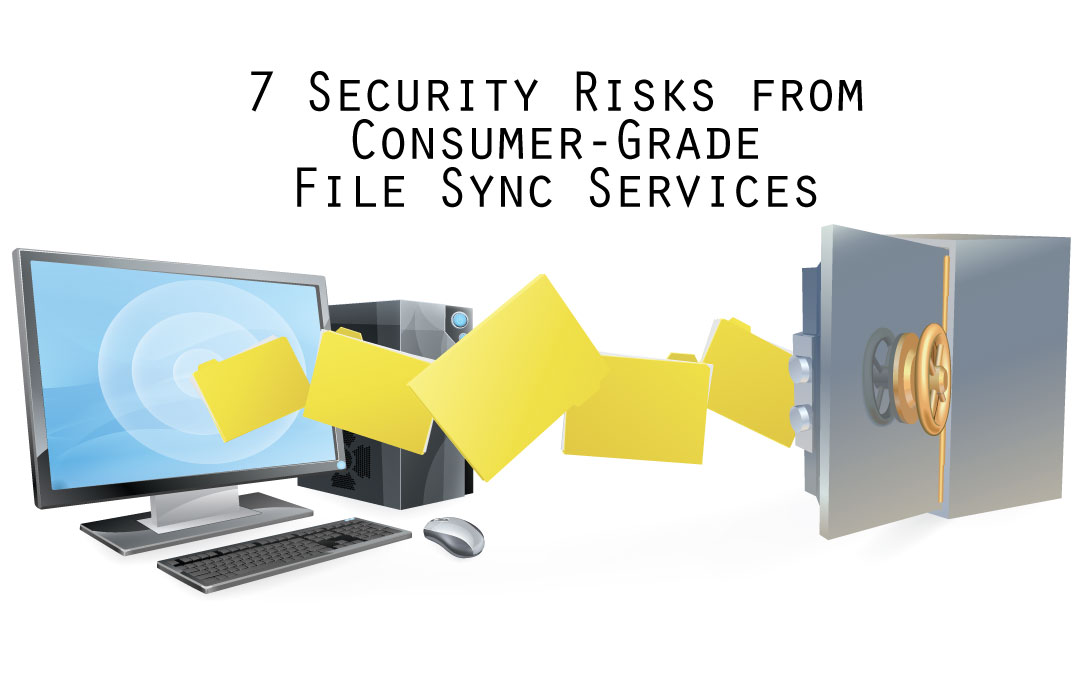Seven Security Risks from Consumer-Grade File Sync Services

Consumer-grade file sync solution, CGFS solutions, can make many challenges for businesses that require constant control and visibility of company data. Here are seven of the biggest security risks that CGFS solutions pose to businesses.
- Data Theft – Most CGFS solution problems come from a lack of oversight. It is very difficult for a business owner to know when a CGFS solution is installed and what employee devices are being synced with company computers. When CFGS solutions are used to sync data between company computers and personal devices it exponentially increases the chance of data being stolen or shared with outsiders.
- Data Loss – Consumer-grade file sync solutions often lack proper back-up of files, if they back-up at all. Files that are modified on an employee’s personal device may not get uploaded back to the company database and this can result in missing or out-of-date data.
- Corrupted Data – One out of every 1500 files is found to have silent data corruption according to CERN. While most business level cloud syncing services ensure data maintains its integrity, consumer-grade files sync solutions do not regularly check for data corruption.
- Lawsuits – CGFS solutions give users full reign on deleting and sharing files. This can lead to the loss of files and the sharing of confidential information with third parties, which in turn can put business owners in a quandary.
- Compliance Violations – Many company compliance polies state that files must be held for a certain amount of time and can only be viewed and modified by certain individuals. CGFS solutions have loose, if any, file retention and access controls making it easy to violate company compliance policies.
- Loss of Accountability – CGFS solutions often lack detailed reports and access alerts. If a malicious employee gains access to company files through a CGFS solution, it can lead to changes in data content, user access, and passwords among other things.
- Loss of File Access – Trying to figure out who created, modified, or deleted a file can be tricky when using CFGS because they won’t track which user or computer accessed the file.
Having a company policies that discourage the use of consumer-grade file sync solutions by employees can inhibit security risks in the short term, it is inevitable that employees will try to get around the rules. The best solution is for a business to employ a company-approved application that will give proper access to files for employees, but allow the IT department to control the data. This keeps data secure and gives employees the freedom and functionality they need to feel productive.
